We use cookies to ensure that we give you the best experience on our website. If you continue to use this site we will assume that you are happy with it
California Background Check Laws: NEW Restrictions of 2023 (Must Read)
 Written by Kristy Griffin
Written by Kristy Griffin
Background Checks | May 16, 2024
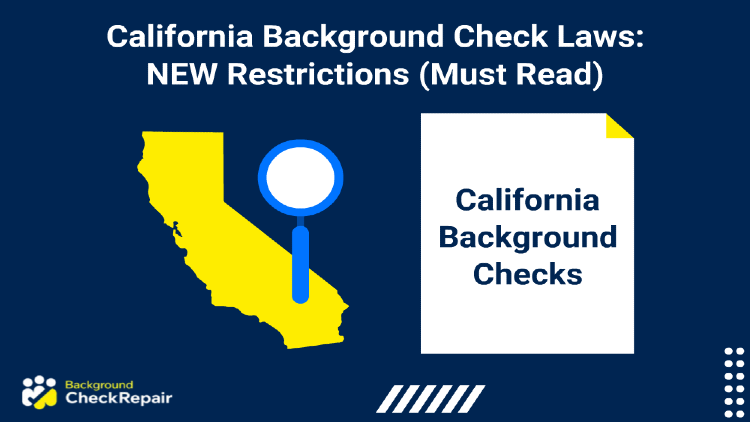
Table of Contents
Understanding the new restrictions to California background check laws is crucial for employers and ordinary citizens who are searching criminal records for disqualifying information about a potential employee, tenant, or even a teacher or neighbor. The ability to run a background check in California has now become much more difficult.
Due to a recent appellate court ruling, courts in California must now remove dates of birth, social security numbers, and other identifying information from court records. This change will make it extremely burdensome to conduct a thorough background check in the State of California. Running a background check on a person without the ability to match up such identifying information will, in some instances, be nearly impossible.
In this guide, we review California background check laws since the new ruling became effective, providing everything you need to know about background checks in California, including how the new restrictions will impact them.
Changes to California Background Check Laws
When running a background check, it is a common and best practice to check the court records in jurisdictions where the subject is known to have resided. In most states, including California prior to the recent ruling, you could enter a subject’s name, date of birth, social security number, or other identifying information into a court database and find all available information for that subject.
This made it relatively easy to locate and verify criminal records.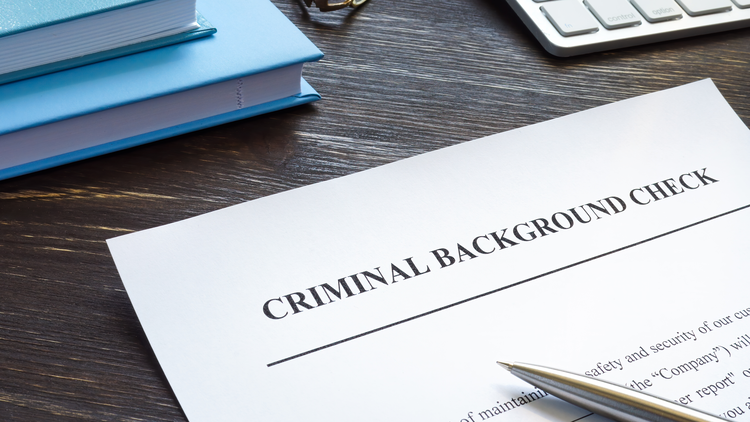
Now, this practice will no longer be available to those running a background check in California. For those needing accurate and complete background information about a person, this is very bad news. However, if you reside in California and have negative events in your past, this new ruling could be quite beneficial to you.
If you only have a name to enter into the database, you could potentially return cases involving hundreds of different people known by that same name. Without other identifying information, such as a subject’s date of birth, driver’s license number, or social security number, it becomes nearly impossible to run a successful level 1 records check.
Current Active California Background Law
Prior to the recent court ruling, California law already heavily restricted how and when an employer could use a background check.
California law prohibited a potential employer (having five or more employees) from running a background check on a job applicant until a conditional offer of employment had been made to that applicant.
Ban the Box and Fair Hiring in California
Ban the Box is the name of a movement throughout the United States that advocates on behalf of former criminal offenders.13 It seeks to remove the check box on job applications that asks an applicant whether he or she has a criminal record.
The purpose of the Ban the Box movement is to lower the barriers to employment faced by most former convicts. Proponents of this movement urge that a former offender should be able to highlight his or her skills and job experience before being asked about any criminal history he or she may have.

California is a Ban the Box state. California Assembly Bill No. 1008 was signed by Governor Jerry Brown on October 14, 2017 and became effective on January 1, 2018.4
This law is also known as the California Fair Chance Act. It prohibits private employers with five or more employees from asking about a job applicant’s criminal history prior to making a conditional offer of employment.
When Can an Employer Conduct a Background Check in California?
After an employer has made a conditional offer of employment, he or she may conduct a criminal background check. However, the employer must conduct an individualized assessment of any information discovered. The employer must consider the gravity of conviction, how much time has passed, and the type of job.
If the employer decides to rescind the conditional offer of employment based on the findings of the criminal background check, before making a final decision, he must:
- Notify the applicant in writing of the information that would disqualify the applicant
- Give the applicant a copy of the background check report containing disqualifying information
- Allow the applicant a minimum of five business days to respond to the employer’s findings
Exceptions to California’s Ban the Box Law
There are some exceptions to the Ban the Box law. An employer is not bound by this law in the following instances:
- The job opening is with a criminal justice department
- The job is as a Farm Labor Contractor
- The job opening is a position in which a local or state agency is required by law to conduct a conviction history check
- The job is one that which an employer is required by law to conduct a criminal background check or is required to restrict employment because of an applicant’s criminal history
States With Ban the Box Laws
In addition to the State of California, Ban the Box laws are in effect and applicable to both private and public employers in the following states:
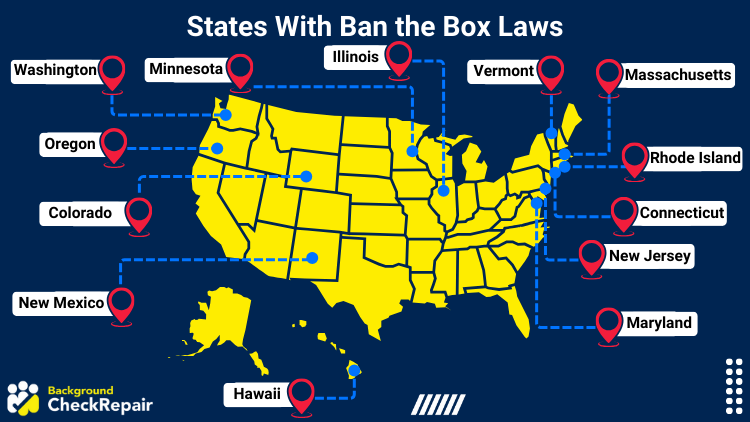
- Colorado
- Connecticut
- Hawaii
- Illinois
- Maryland
- Massachusetts
- Minnesota
- New Jersey
- New Mexico
- Oregon
- Rhode Island
- Vermont
- Washington
How Far Back Does a Background Check Go in California?
Background Checks in California go back seven years. California follows the general seven-year rule of the Fair Credit Reporting Act (FRCA).8 A criminal offense cannot be included on a background check if it is older than seven years unless another law requires that the older history be included.
The FRCA guarantees the right of a job applicant to be provided a copy of the background check. If the applicant believes the background check report is inaccurate in any way or is incomplete, the applicant has the right under FRCA to file a dispute.
The FRCA protections to a job applicant only apply when an employer uses a third-party provider to perform the background check. It does not apply if the employer conducts the background check itself. However, the California law applies these protections not only when a third-party screener is used, but also when an employer conducts the background check itself.
California 7-Year Rule Background Check
California’s law is even more protective of former offenders than the FCRA. After a California State Supreme Court ruling in 2018, the provisions of both the Investigative Consumer Reporting Agencies Act (ICRA) and the Consumer Credit Reporting Agencies Act (CCRAA) now apply to background checks conducted by employers in California.
The ICRAA provisions provide that background checks can only report criminal convictions and open cases. Arrests are not allowed to be disclosed under ICRAA unless the arrest case is still open or the arrest resulted in a conviction. So, arrests wherein the applicant was not convicted, including pre-trial diversion cases, would not be reported.
Under FCRA, the 7-year background check rule did not apply if the job at issue had a salary of more than $75,000 per year. However, under the ICRAA, the salary limit is not considered. Thus, in California, the 7-year background check rule applies regardless of the salary of the job at issue.
Free Background Check: California Records Request
If you know where a person has resided or where they may have committed a crime, you can search that county’s court records. In California, you can search online on a website housing criminal records for all the counties in California.
However, considering the new more restrictive law in California, it would be extremely difficult to perform a background check using the county court databases. If the county court databases no longer contain identifying information such as social security numbers, dates of birth, driver’s license numbers, attempting to conduct a background check by using those databases becomes nearly impossible.
This means using a third-party provider to conduct a background check in the state of California is typically the best choice. Again, this is because using the county court databases yourself will provide less than complete information.
In most cases, a third-party background search provider is not going to offer a comprehensive no-cost criminal history check considering the amount of research time required to even attempt a complete and validate a background check in the state of California where the laws are very restrictive.
However, there are still ways to conduct a records check in California without charge if you know the correct steps as well as the limitations. Ultimately it will depend on the purpose of the CA background check (why the search is being conducted in the first place).
California Arrest Records: How Long Do Arrests Show Up?
In California, arrests show up indefinitely in the records of the California Department of Justice (DOJ), unless they are expunged or sealed. However, the California DOJ only allows certain types of employers to access complete criminal records.
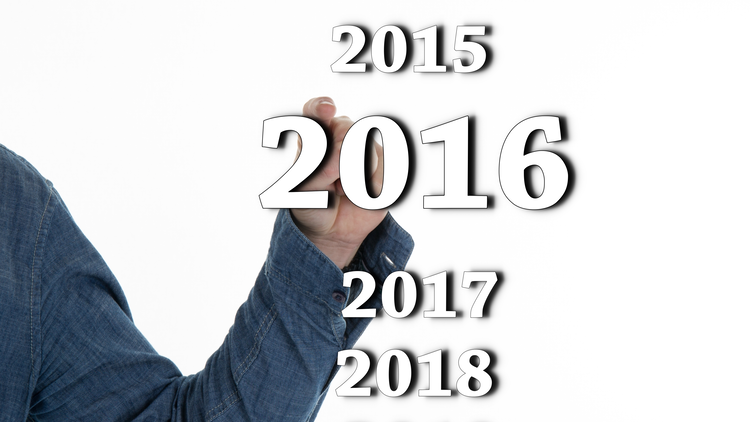
California Penal Code 851.87 permits citizens who have been arrested but not convicted of a crime to have the records of that arrest sealed and destroyed.5 This provision applies even if the person was arrested and completes a pretrial diversion program as well as if the person was found not guilty or was not convicted for any other reason.
For purposes of background checks, California applies the ICRAA. Under the ICRAA, arrests are not allowed to be disclosed on a background check, unless the arrest is still open or the arrest resulted in a conviction.
Furthermore, the new restrictions in California law, based on the All of Us or None, etc. versus Hamrick case,12 make it extremely difficult to find arrest records in most instances.
California Criminal Records on California Background Check Results
In California, a background check results report will only show open cases and criminal convictions that are less than 7 years old. Arrests are not allowed to be disclosed unless the arrest is still open or it resulted in a conviction.
For purposes of an employment background check, these protective provisions apply regardless of the job salary. These protections also apply whether the employer uses a third-party provider to conduct the background check or conducts the background check itself.
California Public Records Requests
California Governor Ronald Reagan signed into law the California Public Records Act (CPRA) in 1968.10 It requires the disclosure or inspection of records held by the state governmental agencies unless otherwise exempted by law. By law, exemptions to the CPRA must be construed narrowly.
Criminal records in California are considered public records and can be accessed by anyone. Public records can be obtained from many state, county, and local agencies.
However, the protective provisions of FCRA, ICRA and the new precedent set by the recent California appellate court ruling make locating criminal records difficult, at best.
Keep in mind that the time required to complete a background check in California will typically depend on the county or jurisdiction.
California Department of Justice Background Procedures
The California Department of Justice (DOJ) maintains all criminal records for the entire State of California. Law enforcement agencies across the state send criminal records to the DOJ. The DOJ then compiles RAP sheets from the records submitted. RAP stands for Records of Arrest and Prosecution.
DOJ RAP sheets are considered the most accurate and valid type of criminal record as the information is positively identified to the individual based upon fingerprint submissions, also known as a level 2 background screen. According to the California DOJ website,1 the DOJ processes 2 million state background checks and 1.2 million federal background checks each year.
Who Can Access California Background Check Information and How Is It Done?
Many people wonder about the requirements for a criminal history check in California specifically. To be clear, the criminal records maintained by the California DOJ can only be accessed by certain parties. Access is limited to valid law enforcement reasons and to authorized applicant agencies. Also, an individual is permitted to obtain a copy of his or her own criminal history.
A third-party agency that conducts background checks for others, such as an employer, must first become an authorized applicant agency with the California DOJ. These are the steps taken by an authorized applicant agency when performing a California DOJ background check for an employer:
- An applicant agency gives the job applicant a BCIA 8016, Request for Live Scan Form.11
- The job applicant must fill out the requested personal information.
- The applicant takes the form, along with valid identification, to a live scan operator.
- The live scan operator will confirm the applicant’s identity and take the applicant’s fingerprints. NOTE: This fingerprinting must be done by a certified fingerprint roller or a law enforcement agent qualified in fingerprinting.
- The live scan operator enters the applicant’s personal descriptor information.
- The live scan operator then sends the applicant’s information and fingerprints to the DOJ.
- The applicant is given an applicant transaction identifier (ATI), which is used to identify their live scan transaction.
- When the DOJ receives the applicant’s information and fingerprints, the fingerprint images are compared to all other fingerprint images in the DOJ database.
- If there is no match to the fingerprints, the DOJ process usually takes 48 to 72 hours.
- If there is a match to the applicant’s fingerprints, a DOJ technician must review the RAP sheet associated with those fingerprints to confirm accuracy. This manual review process can take a considerable amount of time.
- If there is a match, the DOJ technician will look at each arrest to see if there is a disposition for the arrest. If there is not a matching disposition for the arrest, the DOJ technician will contact the arresting agency, court, and/or district attorney to determine the disposition for the arrest.
- Once the DOJ technician has researched all arrests, he or she will prepare a background check report according to California Penal Code 11105 (k-p) and will send the report to the applicant agency.7
California Expungement Background Check Corrections
In California, when a court grants an expungement under Penal Code 1203.4,6 the criminal record is changed to show that the defendant’s final plea to a charge is “not guilty” and then will show that the case was dismissed. An expungement does not wipe away all evidence of the criminal charge.
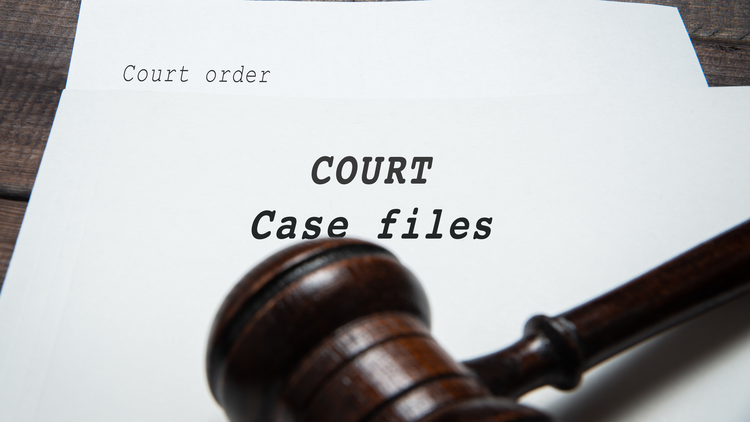
After receiving an expungement, a job applicant does not have to disclose the offense to an employer at any stage of the hiring process.
If you’ve had an expungement, it would be wise to run a live scan background check on yourself to be sure your record has been updated. If the expungement has not been updated to your record, you may submit an electronic copy of the signed court order granting the expungement to the DOJ.
When you receive a background check report from the California DOJ, you will also receive a copy of a BCIA 8706 Form, called “Claim of Alleged Inaccuracy or Incompleteness.” If you believe your report contains errors or is incomplete, you should complete this form and return it, along with any supporting documentation, to the address provided.
Your claim will be reviewed and you will receive a written response regarding the findings of the DOJ. If your claim is granted, the DOJ will update your record and send you a copy of the amended record. If the DOJ denies your claim, you may request an Administrative Hearing with the DOJ.
California Background Check Ammo and Gun Purchases
In California, if you want to purchase a handgun, you must:
- Be at least 21 years old (some exceptions exist for certain persons at least 18 years old)
- Be a resident of California
- Obtain a Firearm Safety Certificate (FSC), unless you are exempt from this requirement (this certificate must be renewed every 5 years)
- Perform a safe handling demonstration with the firearm being purchased in the presence of a DOJ Certified Instructor
- Pass a background check
- Purchase a handgun that has a California DOJ-approved safety device that makes the gun unusable when the safety device is in use
- Purchase an approved handgun from the DOJ Roster Handgun Roster2
To purchase a shotgun or rifle in California, you need to comply with the handgun requirements above, except, you do not need to be a resident of California.
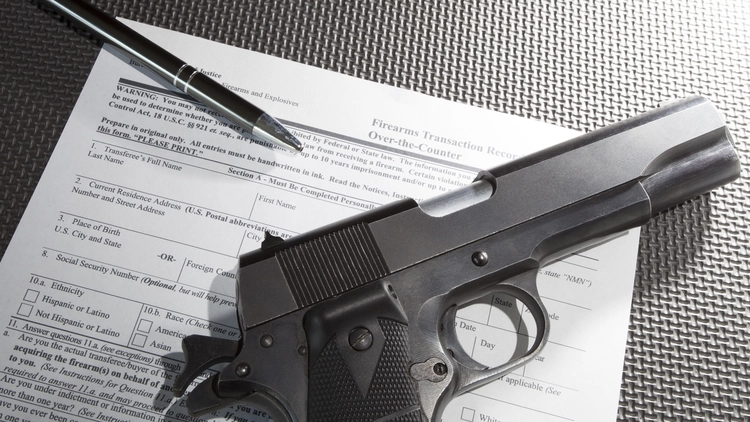
To purchase ammunition in California, you must:
- Prove you are a resident of California
- Pass a background check
- Be 21 years old to purchase handgun ammunition
- Be 18 years old to purchase rifle or shotgun ammunition
Do You Need a Background Check Every Time You Buy a Gun in California? (Background Check: Nanny California Requirements)
Every time you purchase a gun in California, you must submit to a background check. Even if you recently purchased a gun legally in California, a new background check must be conducted to ensure that you are still eligible to purchase a gun.
This background check looks to see whether the person purchasing the firearm is a member of a category of persons prohibited by law from having a gun in California.
Firearms dealers in California must contact the California DOJ to conduct a background check on a potential gun buyer.
In most instances, you will also need a background check every time you purchase ammunition in California.
Employee Background Check: California Law Updates
Amazingly, some studies show that one in three California residents have a criminal record. Considering that employers routinely perform criminal background checks, criminal records in California greatly impact the job market.
As previously discussed in this article, the Fair Credit Reporting Act (FRCA) guarantees job applicants certain rights, if the employer uses a third-party reporting agency, including:
- The right to obtain a copy of the background check report
- To receive written notice that a background check and report is required.
- That the employer must provide notice if he intends to use the applicant’s neighbors, friends or associates as character references
- Notification if any information contained in a background check report is used by the employer to make an adverse decision
California has consistently been one of the most protective states for job applicants with a criminal history. The recent ruling in All of Us or None versus Hamrick greatly expands upon these protections..
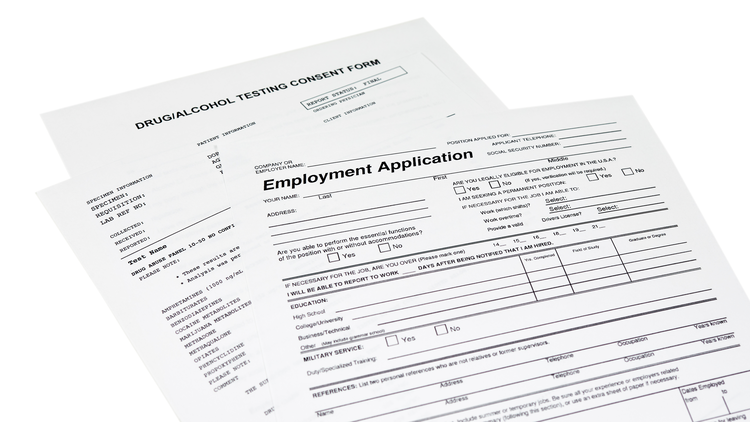
Based upon the recent appellate court ruling, All of Us or None versus Hamrick, Cal Ct. App., 4th Appellate District, 1st Div. No. D076524 (2021), identifying information deemed critical by background checkers, are no longer allowed to be included in court records.
At issue is California Rule of Court 2.507(c),9 which states that with regard to electronic access to court cases, the following data must be excluded from background check results:
- Driver’s license number
- Date of birth
- Social security number
- Financial information
- Arrest warrant information
- Search warrant information
- Victim information
- Witness information
- Ethnicity and national origin
- Age
- Gender
- Government-issued ID information
Prior to the ruling in All of Us or None versus Hamrick,12 if a person already had the above information, he or she could search the criminal records in California and find criminal records associated with that person.
Since that ruling, all the above information must be redacted from the court records and therefore can not be used to identify an offender.
The recent ruling makes it incredibly difficult, if not impossible, to conduct a thorough records check in California. This case ruling is from the Fourth Appellate District of California. However, the ruling is likely to become case law throughout the State of California.
Passing an Employment Background Check: California Job Seekers
California job seekers have many important protections that are not necessarily afforded to job seekers in some other states. Job seekers in California are wise to understand the background process and what to expect, as well as what are their rights and obligations.
In all states, employers must adhere to the protective provisions of the FCRA. California, and some other states, have state laws that provide broader protection for job seekers.
Most employers use a third-party service to conduct background checks on job applicants. If the employer uses a third-party service, the employer must obtain your permission before having the background check process started.
If you know you may have negative information on your background check report, it is advisable to run a background check on yourself. Know what your potential employer will see so you can prepare how to address it.
Also, there may be items on your background check that should have been removed, such as an arrest that did not lead to a conviction, a conviction that was later expunged, or an item that is more than seven years old. If you find items that should not be included in your background check report, you will have an opportunity to have it removed.
Fill Out a California Background Check Online
The California DOJ permits an individual to obtain his or her own criminal record to review it for accuracy. To review your own criminal record through the DOJ, take the following steps:
- Go to the State of California Department of Justice Website.3
- Choose Criminal Histories from the options under the Heading “How can we help you?”
- From the drop-down menu, choose “How to Obtain a Copy of Your Record.”
- This takes you to a page called “Criminal Records – Request Your Own”
- You will find instructions on getting a copy of your criminal record, including a link to the Live Scan Form BCIA 8016RR (available in English and Spanish).
- You can complete the form online and print it out
- Take the form to a Live Scan site for fingerprinting.
- The Live Scan Operator will take your fingerprints and personal information and enter into the system.
- The background check report can be emailed to you or you may have a hard copy mailed to your address.

You can also obtain a California background check for yourself or get a background check on another person in California by using a third-party agency. There are many agencies that provide this service. To obtain a background check on yourself, you can follow these steps:
- Go to an agency website that provides California background checks. There are many.
- Simply choose the get started button.
- You will then be asked some version of “how many background checks do you need to run per year” (for a company), or the option to run your own personal background check.
- Choose “Run A Personal Background Check”.
- You will then probably have the option to choose how extensive of a background check you’d like to run. For example: Starter ($19.99 each), Basic ($29.99 each) or Standard ($59.99 each). Each higher cost option usually promises to deliver a more expanded search than the prior.
- Once you choose the type of background check, you’ll then be asked to enter your personal information, including:
- First, Middle, and Last Name
- Mobile Phone Number
- Email address
- Date of birth
- Address
- Social Security Number
- Most agency sites ask you to authenticate your identity with a text message to the number you entered or a telephone call to that number to give you a passcode you will need to enter.
- Once you’ve authenticated your identity in that way, you’ll be asked to enter your payment information and place the order.
- The site states that it will deliver the background check report in approximately 15 minutes.
There are sites that say they offer a free California criminal background check. However, no totally free background check service is likely to provide an accurate and complete background check.
Understanding the Changes to California Background Check Laws
California has had some of the most protective laws in the country for job seekers for many years. However, on May 26, 2021, a California Fourth Circuit Court of Appeals ruling provided even more protection for job seekers with a criminal history, and the ruling applies to 2023 as well.
The appellate court issued a ruling in All of Us or None of Us versus Hamrick,12 that makes running an accurate and complete criminal background check in California extremely burdensome, if not impossible in some instances.
This Court ruled that the public should not have access to information in the court documents that disclose certain identifying information such as dates of birth and driver’s license numbers. This prevents a person or agency from running a criminal background check in the usual way.
Normally, to run a California criminal background check you would enter into a court’s database, the subject’s name and other identifying information, such as date of birth, driver’s license, or social security number. Without the identifying information, entering a name only may return dozens or more results. Without a cross-reference to an individual’s name, you can not run a meaningful search of the court’s records.
Already since that ruling, many California counties have proactively removed identifying information (like dates of birth) from their court records. It is very likely that other state counties will follow this practice.
This recent court ruling has completely changed how California Background Check laws operate.
References
1California Office of the Attorney General. (2024). Fingerprint Background Checks. State of California Department of Justice. Retrieved May 6, 2024, from <https://oag.ca.gov/fingerprints>
2California Office of the Attorney General. (2024). Handguns Certified for Sale. State of California Department of Justice. Retrieved May 6, 2024, from <https://oag.ca.gov/firearms/certified-handguns/search>
3California Office of the Attorney General. (2024). Homepage. State of California Department of Justice. Retrieved May 6, 2024, from <https://oag.ca.gov>
4California State Legislature. (2017, October 16). AB-1008 Employment discrimination: conviction history. California Legislative Information. Retrieved May 6, 2024, from <https://leginfo.legislature.ca.gov/faces/billNavClient.xhtml?bill_id=201720180AB1008&preview=true&site_id=312>
5California State Legislature. (2018, January 1). Penal Code CHAPTER 5. Arrest, by Whom and How Made. California Legislative Information. Retrieved May 6, 2024, from <https://leginfo.legislature.ca.gov/faces/codes_displaySection.xhtml?sectionNum=851.87.&lawCode=PEN>
6California State Legislature. (2023, July 10). Penal Code CHAPTER 1. The Judgment. California Legislative Information. Retrieved May 6, 2024, from <https://leginfo.legislature.ca.gov/faces/codes_displaySection.xhtml?sectionNum=1203.4.&lawCode=PEN>
7California State Legislature. (2024, January 1). Penal Code ARTICLE 3. Criminal Identification and Statistics. California Legislative Information. Retrieved May 6, 2024, from <https://leginfo.legislature.ca.gov/faces/codes_displaySection.xhtml?lawCode=PEN§ionNum=11105>
8Federal Trade Commission. (2024). Fair Credit Reporting Act. FTC.gov. Retrieved May 6, 2024, from <https://www.ftc.gov/legal-library/browse/statutes/fair-credit-reporting-act>
9Judicial Council of California. (2024). 2024 California Rules of Court. California Courts. Retrieved May 6, 2024, from <https://www.courts.ca.gov/cms/rules/index.cfm?title=two&linkid=rule2_507>
10State of California. (2024). California Public Records Act FAQs. Commission on Peace Officer Standards and Training. Retrieved May 6, 2024, from <https://post.ca.gov/California-Public-Records-Act-FAQs>
11State of California. (2024). Request for Live Scan Service. State of California Department of Justice. Retrieved May 6, 2024, from <https://oag.ca.gov/system/files/media/BCIA-8016.pdf>
12State of California. (May, 26 California Courts). All of Us or None vs Hamrick. Retrieved 6 2021, May, from <https://www.courts.ca.gov/opinions/archive/D076524.PDF>
13Wikipedia. (2024, January 3). Ban the Box. Wikipedia. Retrieved May 6, 2024, from <https://en.wikipedia.org/wiki/Ban_the_Box>
